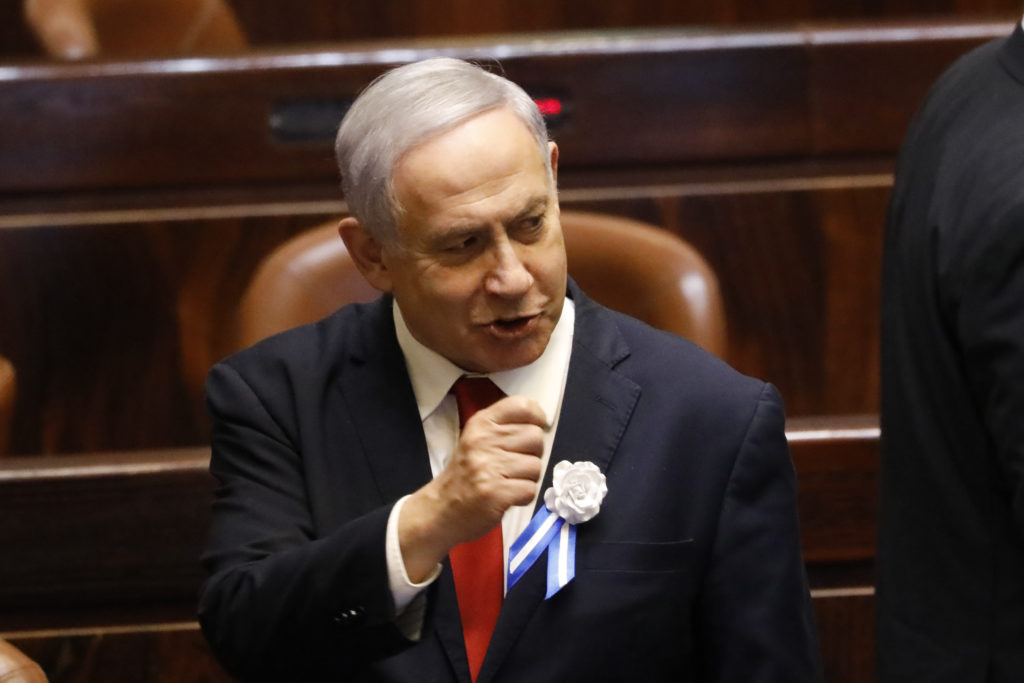The U.S. statement on settlements gives the current prime minister “a shot in the arm to bring home the point of how a Gantz government would be an extreme left government.”
By World Israel News Staff
Prime Minister Benjamin Netanyahu has been calling out his political forces, and is continuing to warn his parliamentary allies that they cannot afford to lower their guard as the Wednesday night deadline nears for MK Benny Gantz, leader of Blue and White, to inform President Reuven Rivlin that he has the ability to set up a new Israeli government and replace the incumbent premier.
A source in Netanyahu’s office told World Israel News that the declaration by Secretary of State Mike Pompeo on Monday that Israeli communities in Judea and Samaria are not “per se” contrary to international law gives the current prime minister “a shot in the arm to bring home the point of how a Gantz government would be an extreme left government.”
The source was referring to the criticism of the U.S. pronouncement by both the Democratic Union and the Joint List, two factions which would be crucial to the formation of a Blue and White-led governing coalition.
On Monday, as parliamentary factions held their weekly meetings in the Knesset, Netanyahu again convened his “bloc of 55,” as it has become known – the number of right-wing and religious MKs emerging from the September 17 election. They have pledged allegiance to a Netanyahu-led coalition government.
In addition to going on the offensive by accusing Gantz and other Blue and White leaders of showing a willingness to form a government that would be “backed by supporters of terror,” Netanyahu has also reportedly been taking preventive action.
According to Israel Hayom, the incumbent prime minister met with MK Gideon Sa’ar, who views himself as a future leader of Netanyahu’s Likud party, to try to ensure that the latter does not bolt his current party.
Blue and White members reportedly have been working to persuade some Likud MKs to defect to their side.
In addition to the many strategy sessions, the most crucial move by Netanyahu and others in the bloc of 55 on Tuesday centered around continuing contacts with MK Avigdor Liberman, leader of the Israel Beiteinu party, who was traditionally seen as a member of the right-wing contingent in the Knesset but who refused to join a Netanyahu-led government after the April election on the grounds that it would be run by “messianists” and based on a platform of religious coercion.
Due to the lack of progress so far in forming a national unity government made up of Likud and Blue and White, which has remained Liberman’s stated preference, and due to the potential for a Gantz government propped up by the Joint List, comprised of predominantly non-Zionist Arab MKs, (whom Liberman has called “a fifth column”), there is a belief on the right that an agreement with Israel Beiteinu to form a new right-wing government is a growing possibility.
Rivlin bemoaned on Monday that party leaders seemed to be headed toward an impasse that would take the country to a third Knesset election because of an inability to form a government.


